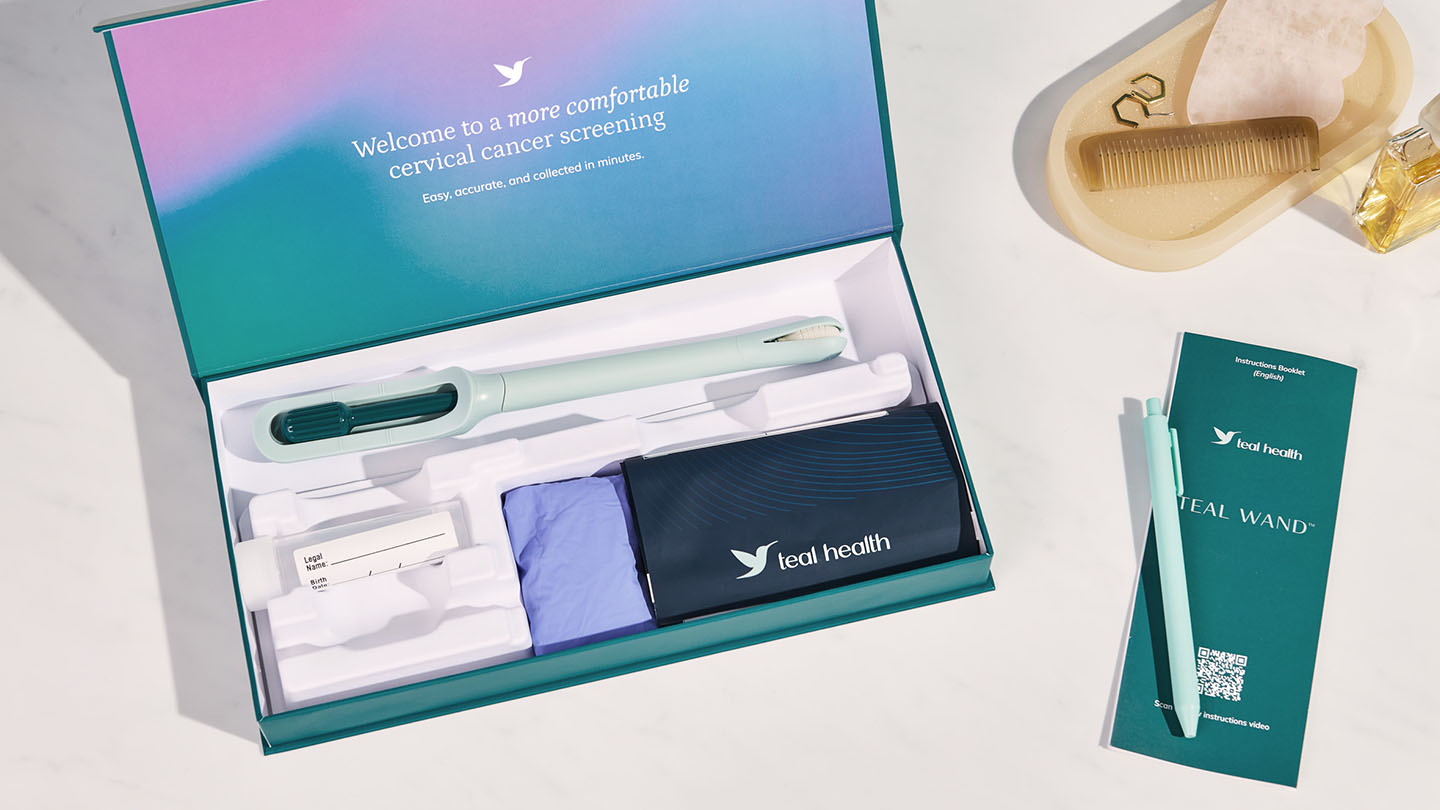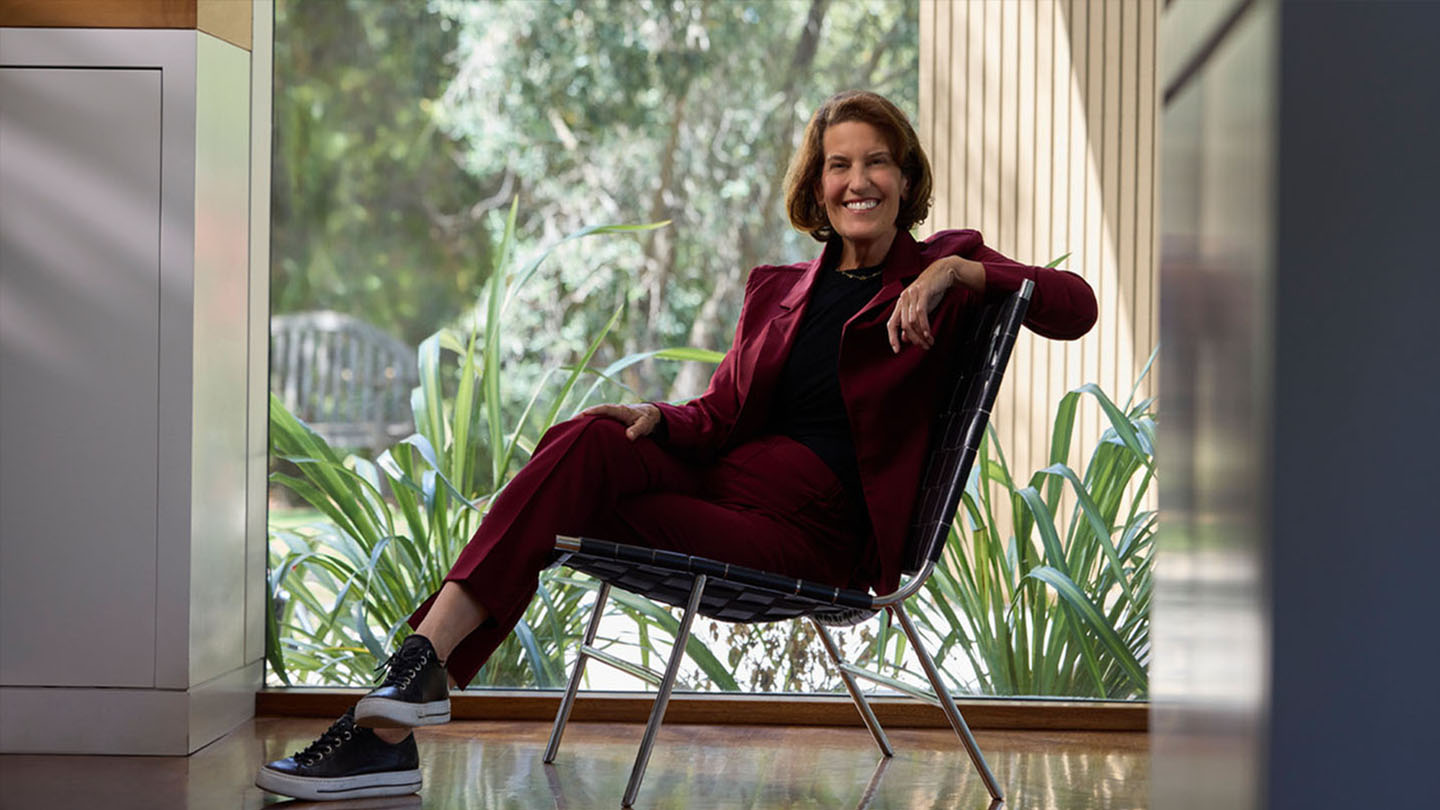
When Kara Egan, CEO and co-founder of Teal Health, set out to transform women’s health care, she had a clear mission: Women deserve the best, not just better, options for cervical cancer screening.
Her company’s FDA-authorized self-collection device for at-home cervical cancer screening, the Teal Wand™, demonstrates how consumer-focused design can drive clinical success—and reveals the financial complexities health tech and life science startups face when scaling regulated products from concept to commercialization across multiple states.
Breaking the mold and redefining medical device marketing
With a background in investing and product marketing, Egan understood what investors want to see—but also knew that patient experience drives clinical success.
“One thing that made me a good investor was not thinking only in terms of what I would use—since most of the time, you’re not the customer,” Egan said. “For Teal Health, it’s about the voice of the customer at every step.”
This philosophy extended to every detail of the Teal Wand, including its printed instructions for use (IFU). Instead of dense medical text, Teal Health created step-by-step visual guides with clean illustrations, branded colors and consumer-friendly language—more like unboxing a premium product than following medical instructions.
“We always joke that our IFU never ended—we kept reiterating and redesigning it,” Egan said. “We questioned why things are done a certain way. Health care tends to be sterile and cold, creating a barrier.”
When Egan asked her head of clinical operations—who has 30 years of experience—whether they could use color in their IFU, the response was telling: "Yes, just no one’s ever cared about marketing for medical devices.”
The consumer-focused approach delivered measurable results. While most clinical studies would be happy to experience 10% participation rates, Teal Health achieved 80% acceptance among women asked to join their study. Their 16-site nationwide clinical trial finished two months early and was 20% oversubscribed. The study showed that the Teal Wand matched clinician collected samples in detecting disease at 96% using a human papillomavirus (HPV) test—the virus that causes nearly all cervical cancers, the clinical efficacy data required for FDA marketing authorization.
To learn more about how we support life science and health tech startups like Teal Health, connect with a banker.
Navigating FDA authorization to solve a critical gap in women’s health care
The clinical study results, combined with FDA Breakthrough Device designation, helped Teal Health secure marketing authorization in May 2025.
Cervical cancer is preventable when HPV is caught early through screening. “We received the Breakthrough Device designation because of its importance to public health. One in four women are behind on their screenings, and the FDA understood the need for innovation and acceleration,” Egan said.
Teal Health’s research revealed that 86% of women would be more likely to stay current with cervical screening if they could do it at home.
The direct-to-consumer approach is already proving this hypothesis: Over 50% of early Teal patients had been behind on screening for five or more years, and about 20% had never been screened at all.
“Women want to stay healthy—they just need more options,” said Egan. “When you give her an option, she engages.”
Scaling nationwide: How J.P. Morgan is helping Teal Health grow
Teal Health’s marketing authorization allows them to sell their Teal Wand device across the U.S., but their business model goes further: They operate as a telehealth medical practice. Patients schedule virtual appointments with Teal providers, who prescribe the at-home screening, interpret laboratory results and deliver follow-up care through a secure patient portal.
The telehealth approach expands access—but also introduces a new layer of regulatory and financial complexity. Each state has its own rules for telemedicine, medical licensing and insurance reimbursement. As Teal expands, they must set up separate entities and banking accounts to comply with state-by-state requirements and manage revenue streams from both direct-pay customers and insurers.
“J.P. Morgan has been helpful, especially with cash flow management and setting up accounts for each entity,” Egan said. “We’re still in early days, but tight financial management is going to be crucial—managing capital raised, expenses, insurance reimbursements and manufacturing costs.”
“This complexity accelerates during commercialization,” said Jason Greenland, Vice President, Life Sciences and Healthcare Startup Banking at J.P. Morgan. “Before FDA authorization, it’s all about clinical trials and regulatory hurdles. Once authorized, it’s about managing manufacturing, insurance and regulations, all while scaling rapidly.”
During this high-growth phase, having a banking team with experience supporting multi-entity, multistate health care businesses is vital.
“It’s important to have people who’ve seen what’s coming. Having a bank like J.P. Morgan that’s seen multiple companies at different stages is going to be really beneficial.”
—Kara Egan, CEO and co-founder, Teal Health
Seed rounds and Teal Health’s formula for startup fundraising
Despite a competitive fundraising climate, Teal Health raised a $10 million seed round in 2024, bringing their total raise to $23 million. Egan credits this success to three core factors:
- Execution over promises: “We’re a tiny team that gets things done. Investors want to see execution, and we deliver,” Egan said. The 15-person team consistently hit milestones ahead of schedule.
- Proven product efficacy: Teal Health’s clinical trial demonstrated their at-home device matched physician-collected samples’ accuracy, and 94% of women preferred the Teal Wand to the existing standard of care.
- Market validation: Even before formally launching, Teal Health built market awareness and demonstrated clear demand for their solution.
Egan’s advice for other founders: Move beyond identifying the problem. “Investors want to know that your business can be financially sound. Move from ‘here's the big problem’ to ‘here’s how my business uniquely solves this and hits revenue for sustainable growth.’”
Greenland notes that startups like Teal Health face unique funding dynamics. “Life science startups are typically venture-backed. They often don’t have revenue for many years as their product goes through FDA development and their financial needs differ from companies with revenue streams.”
For more tips on fundraising for your startup, read our guide on raising capital or visit the Innovation Economy Content Hub for more insights.
Build your future with J.P. Morgan
Choose a bank that can grow with you, helping you maximize your runway and scale as your needs become more complex. With decades of global experience, an extensive professional and venture capital network, and scalable financial solutions, J.P. Morgan supports startups at every stage. Visit our Innovation Economy page to learn more.
JPMorgan Chase Bank, N.A. Member FDIC. Visit jpmorgan.com/commercial-banking/legal-disclaimer for disclosures and disclaimers related to this content.







